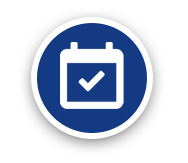Oral appliances work by gently pulling the jaw or tongue forward. This prevents your tongue from blocking your airway so you can breathe. A sleep dentist custom-fits an oral appliance to your mouth. It can be one piece or two pieces.
Some advantages of oral appliances are that they are:
- Comfortable
- Convenient
- Easy to care for
- Portable
- Quiet
- Simple to maintain
You may have some mild side effects when you first use an oral appliance. These can include:
- Dry mouth
-
Grinding your teeth
- Increased saliva
- Mild discomfort in your teeth
- Tenderness of your gums or jaw
These side effects typically go away after a few weeks.
Oral appliances are a long-term solution for OSA, and you’ll have regular follow-up visits with your sleep dentist. They’ll assess your comfort and adjust the device as necessary.
The U.S. Food and Drug Administration (FDA) has approved oral appliances for sleep apnea treatment. The American Academy of Sleep Medicine recommends oral appliances for people who can’t use positive airway pressure (PAP) treatment for OSA.
Oral appliances are almost as effective as continuous positive airway pressure (CPAP) therapy for mild to moderate sleep apnea.
Once fitted with Oral appliance therapy we do a repeat sleep study on the appliance to make sure your sleep apnea is adequately treated.



